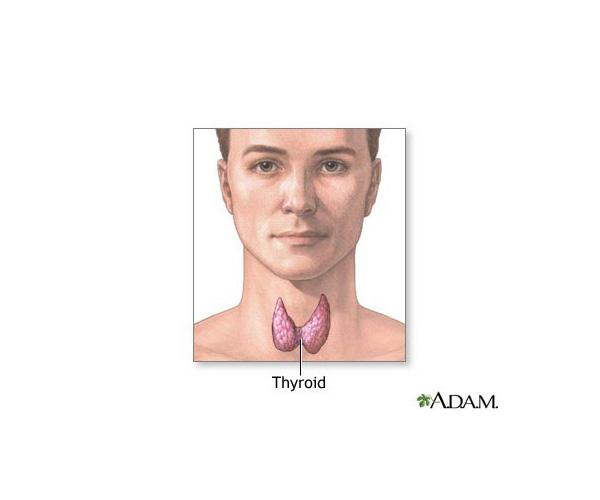Hashimoto’s Thyroiditis

Hashimoto’s thyroiditis is an inflammation of the thyroid caused by an autoimmune disease in which anti-thyroid antibodies attack the thyroid gland. In the U.S., Hashimoto’s thyroiditis is the most common cause for Hashimoto’s hypothyroidism—inflammation resulting from an underactive thyroid gland. Some individuals with Hashimoto’s thyroiditis may never develop hypothyroidism.
Hashimoto’s Thyroiditis gets its name from Hakaru Hashimoto, who first described it in 1912.
Painless and Postpartum Thyroiditis
Painless thyroiditis occurs when the thyroid gland becomes inflamed and consequently vacillates between hyperthyroidism and hypothyroidism. Women who were recently pregnant may develop painless postpartum thyroiditis. As its name suggests, this condition is not painful and usually resolves without treatment. Patients diagnosed with this disorder have a 20% chance of permanent hypothyroidism, according to some studies.
Subacute Thyroiditis
In subacute thyroiditis, there is a short period of both hyperthyroidism and hypothyroidism accompanied by pain and discomfort in the neck. The hyperthyroid and hypothyroid phases typically resolve without thyroid medication or treatment within a year to 18 months. Still, patients with subacute thyroiditis may require treatment for pain and discomfort. Patients with this disorder have a 5% chance of permanent hypothyroidism.
Drug-Induced Thyroiditis
Inflammation of the thyroid gland may also occur in individuals who are taking certain medications, including amiodarone, lithium, interferons, and cytokines. The thyroid inflammation can continue as long the specific drug is taken. The hyperthyroid and hypothyroid phases of drug-induced thyroiditis can usually be managed by medication alone.
Radiation Thyroiditis
Patients may develop radiation-induced thyroiditis following treatment with radioactive iodine for hyperthyroidism or radiation therapy for cancers.
Fibrous Thyroiditis (Riedel’s Thyroiditis)
Fibrous thyroiditis is a rare chronic condition in which the tissue of the thyroid and surrounding structures become hard and fibrous due to a significant inflammatory process. The treatment of choice for this condition is medical rather than surgical. Surgery can be used mainly to relieve symptoms associated with obstruction, but only after all medical therapy options have been exhausted. Symptoms are caused by the inflamed thyroid physically constricting either the trachea or esophagus, which leads to hoarseness, difficulty breathing, or difficulty swallowing.








